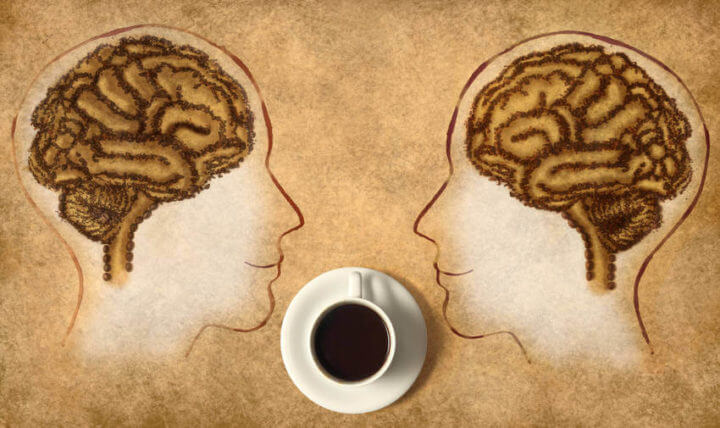Coffee is the true companion of many people in the morning and allows them to start the day with a boost. However, caffeine has its downsides, such as the possibility of increasing the physical and mental impact of stress on your body.
This can be harmful for a number of reasons, including that chronic stress causes hormonal imbalances, leading to inconsistencies in the immune system and increasing the risk of developing infections and diseases such as cancer. So drinking too much coffee can be dangerous in the long run , even if no one warns you about it.
In this sense, we will try to explain to you how caffeine affects the immune system.

Effects of caffeine on your body
Caffeine increases brain activity by inhibiting adenosine, which is a neurotransmitter that is responsible for lowering the levels of other neurotransmitters and keeping them within their limitations.
On the other hand, caffeine also stimulates the nervous system that is responsible for acting in a fight or flight situation. During the decision of that response, stress hormones such as cortisol release the body's stores of fat and sugar in preparation for the physical execution of that response.

Stress and the immune system
Responding to a stressful situation is important for survival, but when it persists it can lead to various problems such as high blood sugar, cholesterol and triglycerides, as well as suppression of the immune system.
Your immune system is responsible for recognizing and destroying pathogens such as bacteria, fungi and viruses, as well as eliminating damaged cells. This must be done for two reasons: in the case of lesions and cells with abnormal behavior, or in the case of cells that can cause cancer.
There are various investigations to denote the relationship of caffeine with cortisol . One of them showed that people who took 3 intakes of 250 mg of caffeine experienced the release of higher levels of this hormone in response to both physical and mental stress. And, as we know, elevated levels of cortisol in your body have the ability to prevent the immune system from fighting infections (Lovallo, Farag, Vincent, Thomas & Wilson, 2006).

Recommended caffeine intake
It's true that health improvements have been noted when people cut back on caffeine, so our recommendation is to limit your intake to 200 milligrams per day or about 2 cups of coffee per day.
However, if you still insist on drinking more than that dose and exceed 500 milligrams a day, you could experience side effects from nervous system function. Some of them can be insomnia, nervousness, irritability, digestive problems, fast heartbeat, and muscle tremors.

conclusion
It can be a bit difficult for coffee lovers to swap this drink for a caffeine-free one, but it is greatly beneficial for your body if you do. At first it will be problematic, but if you reduce your dose gradually it will be more bearable.
Other healthy alternatives such as fruit and vegetable smoothies are at your full disposal if you want to try them.
References
- Chris, D. How Caffeine Affects the Immune System. For Livestrong. [Revised January 2020].
- Lovallo, WR, Farag, NH, Vincent, AS, Thomas, TL and Wilson, MF (2006). Cortisol responses to mental stress, exercise, and meals following caffeine intake in men and women. Pharmacology, Biochemistry and Behavior. doi: 10.1016 / j.pbb.2006.03.005